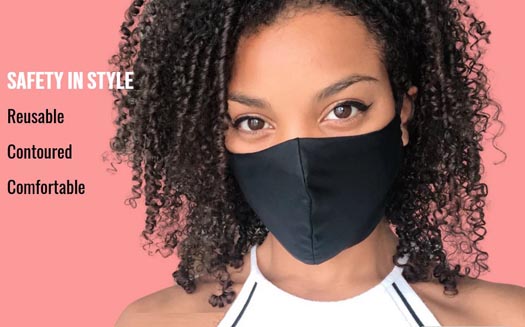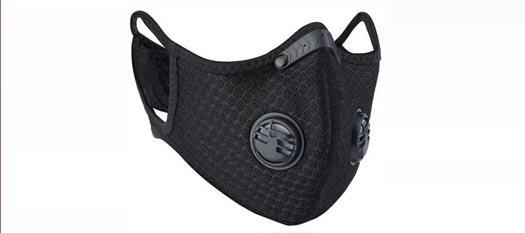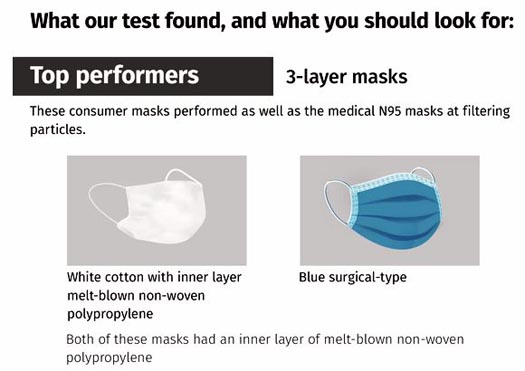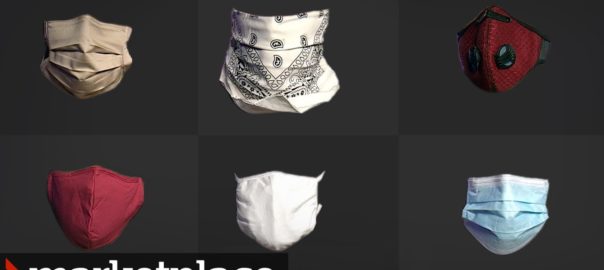
Wearing a mask is critical to reducing the spread of COVID-19, but rigorous tests conducted on behalf of CBC’s Marketplace found that while some work very well, others offer little protection from the particles that transmit the novel coronavirus. One type of mask even spread those particles to others.
Today on VanRamblings, for those who missed the November 13, 2020 episode of Marketplace, please find below the video of the results of the laboratory tests that were conducted on more than 20 different face masks on the market, revealing the safest, most effective mask for you to wear.
Marketplace put the masks through the rigorous National Institute for Occupational Safety and Health (NIOSH) standard test, conducted at a lower air-flow regimen to reflect normal breathing. The test is usually reserved for N95s and personal protective equipment (PPE) intended for health-care workers. A standard NIOSH test measures filtration efficiency, meaning the particles the mask filters out as the wearer breathes in.

One of the poorest performing masks, not only offering you minimal if any protection but serving to possibly infect others if you are an asymptomatic COVID-19 carrier is the valve mask pictured above — a mask, it should be noted in passing, VanRamblings purchased last spring, and (in retrospect now, stupidly) recommended to friends and acquaintances.

In fact, of the more than 20 masks tested, only the valve mask was designated as a Do Not Use mask by scientists, as the mask risks spreading particles to others.
So, if the valve mask is the worst mask to purchase, what’s the best mask for you to buy? The answer: a 3-layer mask with an inner layer of melt-blown non-woven polypropylene — the only mask you should be wearing.

The best consumer mask Marketplace tested had an inner layer of melt-blown, non-woven polypropylene fabric and outer layers of high quality, 600 – 800 thread count cotton, with filtration efficiency rates as high as an N95. James Scott, a professor from the University of Toronto’s Dalla Lana School of Public Health, who specialiazes in bioaerosols, ran the lab where Marketplace’s tests were run. Scott reported the combination of multiple materials contributed to the strong result for the masks pictured above.
“Even fairly low-efficiency masks are actually quite effective at catching much larger particles. But, it takes a really good mask to catch the small ones as well. And we know that the virus will travel not only on the big ones but the small ones as well,” said Scott.
You can find more information on all the masks tested by Marketplace in the video above, and on the CBC website, in this story.
After watching the COVID-19 face mask episode of Marketplace, VanRamblings purchased our melt-blown, non-woven polypropylene filtered cotton mask from the folks at The People’s Mask, for only $19.99, purchasing a 30-pack of filters (which we change weekly) for $29.99, plus applicable taxes and shipping, both of which products arrived within days.
When we’re out and about now — not a regular occurrence these days, except to go for a walk, a bike ride or shopping for food — we feel safer than previously, and feel good about not possibly infecting others.
Following the research conducted by CBC’s Marketplace, adding a third layer to cotton face masks is now recommended for preventing the spread of COVID-19. Non-woven polypropylene fabric is the material of choice for this third layer. This report out of McMaster University provides detail on what to do, and what not to do if you’re considering making the polypropylene mask at home. Amazon.ca sells a polypropylene filter mask, but delivery of the mask would not be due til late January or early February, so you may want to look elsewhere this particular filtered mask.
Edmonton-based The People’s Mask and Toronto’s Sydney’s both sell three-layer options. If you’re into fashion, there are designs by Amanda Lee Kew and Mayana Geneviere that have a pocket to easily pop a filter into.
The People’s Mask seems like the best, and least expensive, three layer polypropylene filter mask to buy. If you’re making face masks at home you can buy the filters through them, as well.
